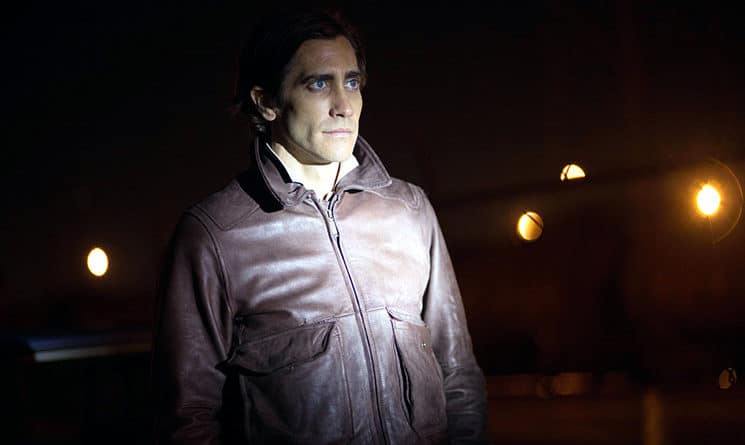2014, rated R, 117 minutes
When you hear that Hollywood has produced a budding new director, with a debut feature that just knocks it out of the park, you might imagine some hot young thing with a few lucky connections and a satchel packed with talent. Dan Gilroy, writer and director of “Nightcrawler,” is not that. First off, he’s kind of old, and he’s been circling the more average side of the movie biz for a while. You can find his name on half-assed projects going back for decades. This is the guy who wrote “Freejack” back in 1992. His most recent paycheck came out of the decent-but-doomed “Bourne Legacy,” famous mainly for not starring Matt Damon. So, yes, he has a few connections (he’s also married to Rene Russo), but his track record wouldn’t lead anyone to believe that behind all that long-sustained mediocrity, a truly unsettling intellect was waiting to spring. But maybe it’s no coincidence that “Nightcrawler” features a main character named Bloom.
The movie opens on a shot of bolt cutters. The thief holding them, we quickly learn, is well beyond simple boundary issues. Louis Bloom (Jake Gyllenhaal) doesn’t just jump a fence to take what he wants. He’ll steal the fence, too. As a small-time hustler, he’s getting by, but he wants more. Bloom’s ambitions are matched only by his total lack of self-awareness and social skills.
On his way back to his lonely hole of an apartment, a chance encounter at the scene of a gruesome car-wreck — where freelance camera crews descend like buzzards — gives him a great and wretched idea. For the price of a stolen bike, he snags a cheap starter camera and a police scanner and goes into business for himself. A sick, sad business it is. And he’s good at it.
Bloom doesn’t just want to chase ambulances; he wants to get there before they do. Prowling forgotten back streets of Los Angeles that appear to be made of equal parts asphalt, neon and grease, he doesn’t comprehend or even notice speed limits or limits of any kind, and this gives him an unbeatable edge over his slightly less sociopathic competition. He blithely dives into and around crime scenes, smelling for blood like a mosquito, filming all the way. He’s got a preternatural eye for picking truly salacious shots, and he’s a quick study. “If it bleeds, it leads,” the attractive director of the local morning news team (oh, hi there, Rene Russo, funny seeing you here) tells him, as she hands him his first check. She’s hurting for ratings and desperate for juicy footage, and Bloom’s a kind of angel.
Like a rainbow on an oil slick, Gyllenhaal projects a slippery-yet-deliberate intensity that’s difficult to look away from.
When his commissions start to pile up, and his appetite for success and attention grows, it becomes uncomfortably apparent it’s not the financial reward that matters to him, but the power he’s discovered he can leverage over the powerless. Observation advances to participation, and as might be expected of any new director, he starts arranging situations for maximum effect. He makes videos the same way Ed Gein made gloves.
As Bloom, Gyllenhaal is absolutely captivating. Like a rainbow on an oil slick, he projects a slippery-yet-deliberate intensity that’s difficult to look away from. It could be that he never blinks. He’s got limp, skinny arms and a piercing bug-eye stare. He speaks like he was raised by a Power Point presentation, in staccato bursts of slimy corporate-ese, blathering, with some confidence, about “going to the next rung” and “building personal relationships.”
For Bloom, there are no interactions, only transactions, and it’s positively inhuman. One doesn’t often think of a frog as a predator, but he’ll remind you. Sitting in the dark with his crooked frog smile, just waiting for a fly.
One gets the sense that Gilroy has spent the last 20-odd years observing the Hollywood machine, quietly playing its game and getting inside its conventions so he could better sneak up behind it and bury it in the cellar. What was the last movie you saw that had no identifiable protagonist? Or discernible conflict? Can you think of a main player from any contemporary American film that had no backstory, did exactly everything he wanted to do, and had no character arc whatsoever? When was the last time you heard bongos during a car chase?
Seriously, by all Hollywood standards, “Nightcrawler” should be a complete disaster. It should not be even half as fascinating as it is. But it is. It’s a gloriously subversive accident orchestrated with proficient and ghoulish design. Like all the very best catastrophes, try as you might, you won’t be able to tear your eyes away.

